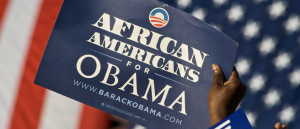Is it wrong to describe someone as black?
 It’s an important question in many parts of the world, including rather surprisingly perhaps Britain and India where racial issues may seem very differently hued. Mostly though, it is in America that black is thought to be both a contemptuous label and an identifier that automatically blocks equality, personal security and privilege. In America, if someone is described as ‘black’, which is to say they are seen as poor, ghettoized and dangerous, it can get them killed, especially if they are young and male.
It’s an important question in many parts of the world, including rather surprisingly perhaps Britain and India where racial issues may seem very differently hued. Mostly though, it is in America that black is thought to be both a contemptuous label and an identifier that automatically blocks equality, personal security and privilege. In America, if someone is described as ‘black’, which is to say they are seen as poor, ghettoized and dangerous, it can get them killed, especially if they are young and male.
So black is a loaded adjective, dangerously freighted with negative associations and stereotypical notions about morals, conduct and ability. In America, as Ta-Nehisi Coates of The Atlantic noted in a landmark essay that argued for reparations for black people, even today, black families, regardless of income, are significantly less wealthy than white families. These are worth roughly 20 times as much as black families. Coates, who’s black himself, writes that the visually black four Obamas in the White House are “evidence of their family’s singular perseverance, not of broad equality…. In the contest of upward mobility, Barack and Michelle Obama have won. But they’ve won by being twice as good — and enduring twice as much.”
For, despite the ecstasy of hope that greeted the election in 2008 of America’s first visually black president, the country cannot be said to have entered the post-racial era and set aside the bitterness and unfairness of slavery, segregation and separate realities for black and white people.
As Nigerian writer Chimamanda Ngozi Adichi put it in Americanah, her beautifully told 2013 story about love, identity, loss and loneliness, Ifemelu, a spirited student from Nigeria finds that she has become “black” only when she arrives in America. She loses her new interest in and awareness about race as soon as she returns to her home country.
There’s no question that America sees black as a terrible way to be, a condition to be remedied, a challenge to be overcome. But it’s not proud of its view today and this is the context of the attempts to stop describing people as black, at least officially.
Cue New York City Council’s push two years ago, to get police to stop reporting on a suspect’s gender, race, age and disability, out of concern that such descriptions constitute unfair profiling. It was a misguided attempt to address repeated complaints about police tactics towards black people, particularly the tendency to stop and frisk them – but not white passers by – for contraband. The sentiment may have been admirable but good intentions don’t always make good policy. The New York Police Department Captains Endowment Association president Roy Richter objected that it would hamper police work enormously. “When we have wanted suspects and patterns of crimes, those are very important descriptive terms to let officers know who to look for.”
Surely that’s the point: black is a descriptive term. The bias is a mindset.
In any case, how could one ever outlaw the word “black”? Or “brown”? Or “blonde”? Should we? What would we replace them with? How would we describe anyone? With euphemism?
Britain has tried that. It doesn’t work because removing a word does nothing about the implicit prejudice that makes it verboten to describe people as what they are. Britain variously calls non-white people “ethnic minorities” or more pompously still, “visually distinct minorities”. To call someone black is considered an insult as if being a particular colour automatically makes you bad, rather than what you are. Black British might mean, say, a busy doctor of Jamaican origin, a hardworking bus conductor from Nigeria, a restaurant cook from Trinidad, an actor from Kenya. The refusal to call someone black refuses to acknowledge that colour does not determine whether or not they are a fine upstanding member of society. As a black British woman memorably complained on an online forum that discussed racial issues: “I was described as African-American in England because someone didn’t want to say the word black…” But of course, she was nether African nor American. She was British and from the Caribbean.
That said, language, of course, only reflects prejudice; it doesn’t form it. Consider the term that Indians (themselves a sufficiently dark-skinned people to have suffered from racism) use for black people. They call them “habshis”, a word that evolved by corrupting “Abyssinian”. And they regard them as primitive and ape-like and entirely unsuitable as potential partners or members of the family. Remember Mississippi Masala, Canadian director Mira Nair’s 1991 film that starred Denzel Washington? It explored an interracial romance between an African American man and an Indian American girl. Needless to say her family was appalled that she would stoop to marry a black man. That was the “habshi” effect. Calling someone black in India means you think they are a “habshi” and somewhat lower than you.
Even so, is it wrong to describe someone as black?
Yes, if you mean it as a judgement. But not if it’s a way of identifying someone in a crowd of white people. Naturally, it would be entirely useless as an identifier in a predominantly black country. And it wouldn’t carry unpleasant associations either.

